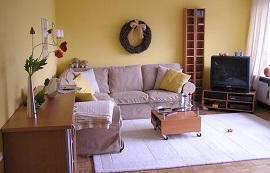Unless it’s winter, most of us give little consideration to our furnaces. In many cases, our furnace will not even be switched on until the temperatures start to drop. Unfortunately, failing to undertake off-season maintenance could cost you far more in the long run, as you may be left facing a hefty repair bill. Additionally, if your system is not functioning properly, you may find that your air quality is compromised. While the prospect of contractor bills is not something anyone looks forward to, spotting smaller issues does provide the opportunity for prompt repairs and prevent them from developing into a major system failure or fault.
Is There Less Heat?
When there is still adequate airflow, but there is less heat being distributed around your home, there could be a problem with your furnace. If your furnace is not generating the correct amount of heat, it could be an indicator that the burner is faulty, a mechanical issue has developed, or there is an issue with the gas flow. This type of problem will not correct itself, and you may find that as the issue deteriorates you end up with no heat in your home at all.
Have Your Utility Bills Increased Significantly?
While we all anticipate that our utility bills will increase even in LA’s relatively mild winter, if the bills have increased significantly, it could indicate that there is an underlying fault. A damaged component could be forcing your unit to work harder to maintain the same performance. An unexpected rise in your heating bills without apparent cause will almost certainly indicate a problem.
Is the Air Flow Reduced?
If the airflow of your system has been reduced, it is likely the result of an accumulation of dust and debris inside your system. Clogged air filters and dirt accumulation could prevent the blower fan from running at the correct speed. Contact a professional HVAC contractor who can check if the fan is operating at the correct RPM or if there is a clog in the system.
Will the System Turn On?
If your system doesn’t have power when you switch it on, this is likely to be the result of an electrical problem or a system safety feature. Certain faults can trigger electrical issues, which will prevent power going to the system. Additionally, most modern furnaces have safety mechanisms in place to prevent noxious gas dispersing inside your home. This means that in the event of a problem, gas will not be supplied to the furnace and the system will not turn on.
Your HVAC system is likely to have a long potential lifespan, but this can be compromised by faults not being properly addressed. Regular servicing and maintenance can allow for small errors to be quickly identified and corrected. An experienced contractor or HVAC specialist will be able to perform a thorough check to ensure that the system is operating at optimum efficiency and performing properly. It is a good idea to consider having your system serviced before winter really sets in to ensure that when the temperatures drop into the 40’s or 30’s, you will be warm and comfortable inside your home.
